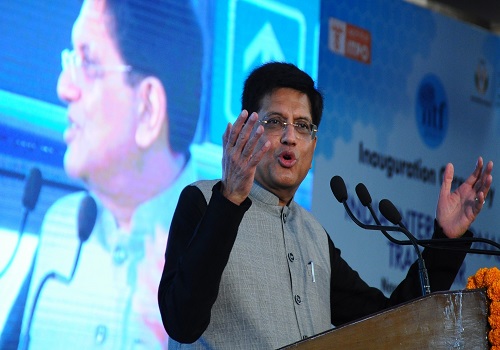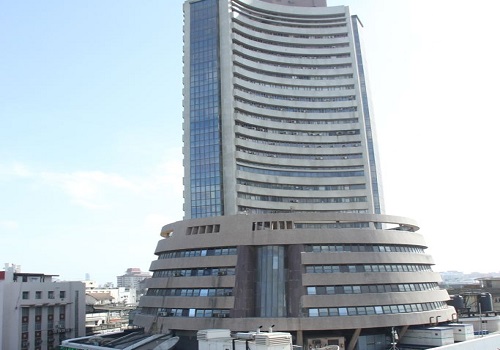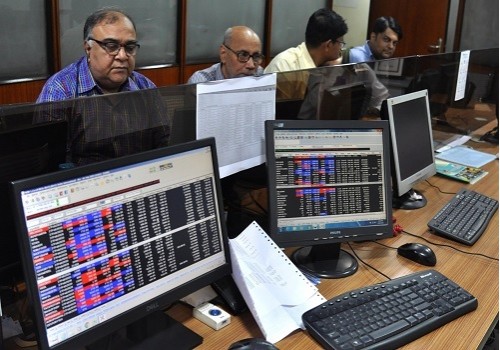Markets extend sell-off for fourth day
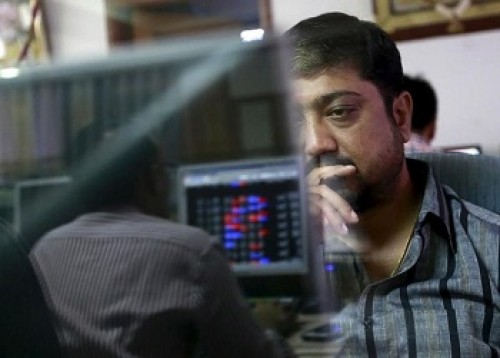
Follow us Now on Telegram ! Get daily 10 - 12 important updates on Business, Finance and Investment. Join our Telegram Channel
Indian equity benchmarks closed over half a percent lower but off Friday's intra-day lows, extending the sell-off for the fourth day. The benchmark indices opened on a sharply negative note in tandem with the weak sentiment across the global markets. Traders remained cautious as the government data showed that retail inflation for farm and rural workers rose to 4.78 percent and 5.03 percent respectively in December 2021, mainly due to higher price of certain food items. Some concern also came with domestic rating agency ICRA’s report stated that the recent surge in fresh Covid infections as well as subsequent localised lockdowns emanating from Omicron spread are likely to shave off around 100 bps of growth in toll collections in fiscal year 2021-22.
However, the key indices made a sharp recovery in afternoon trade, as traders took some solace after the payroll data of the Employees’ Provident Fund Organization (EPFO) showed at least 8,27, 979 people joined formal work for the first time in November, showing a marginal uptick in the formal sector job creation over the month-ago period. Adding some optimism, with a view to boost economic activities slowed down due to the impact of COVID-19, the Finance Ministry has relaxed spending norms for the fourth quarter in a bid to spur capital expenditure. But, key gauges failed to hold recovery and ended lower, as some anxiety remained among traders with a private report stated that institutional investments in real estate fell 81 per cent at $670 million during the December quarter because of lower inflow in office assets. Besides, persistent selling by FIIs weighted down on the markets. As per provisional data available on NSE, Foreign institutional investors (FIIs) sold shares worth Rs 4,679.84 crore on January 20.
On the global front, Asian markets settled mostly lower on Friday following the broadly negative cues from Wall Street, with weakness across all industry sectors, particularly technology stocks. Traders remain worried and cautious amid the rapid spread of the coronavirus Omicron variant in most countries and the likely economic impact of the related fresh curbs. European markets were trading lower with renewed concerns over the Federal Reserve's tightening and U.S.-Russian tensions over Ukraine likely to weigh on sentiment. A disappointing earnings report from Netflix may also serve to keep underlying sentiment cautious. Back home, on the sectoral front, stocks related to auto components industry were in watch as private report stated that the domestic auto components industry is expected to see a revenue growth of 15-17 per cent this fiscal and 10-12 per cent in the next financial year on the back of recovery in automobile sales after having remained subdued in the last couple of years. Besides, Gems and Jewellery sector’s stocks too were in focus as the GJEPC said gems and jewellery exports in the April-December 2021 period grew by 5.76 per cent to $29.08 billion on account of healthy demand in major countries including the US, Hong Kong and Thailand.
Finally, the BSE Sensex fell 427.44 points or 0.72% to 59,037.18 and the CNX Nifty was down by 139.85 points or 0.79% to 17,617.15.
The BSE Sensex touched high and low of 59,329.63 and 58,620.93, respectively and there were 8 stocks advancing against 22 stocks declining on the index.
The broader indices ended in red; the BSE Mid cap index fell 2.01%, while Small cap index was down by 1.96%.
The lone gaining sectoral indices on the BSE was FMCG up by 0.05%, while Telecom down by 3.03%, Consumer Durables down by 2.93%, Realty down by 2.35%, Capital Goods down by 2.31%, PSU down by 2.12% were the losing indices on BSE.
The top gainers on the Sensex were Hindustan Unilever up by 2.68%, Maruti Suzuki up by 1.89%, HDFC up by 1.02%, Nestle up by 0.95% and HDFC Bank up by 0.73%. On the flip side, Bajaj Finserv down by 5.37%, Tech Mahindra down by 4.44%, Tata Steel down by 3.18%, Bharti Airtel down by 2.83% and Indusind Bank down by 2.77% were the top losers.
Meanwhile, domestic rating agency Icra Ratings said that it has revised the asset under management (AUM) growth outlook of retail non-banking financial companies (NBFCs) to 5-7 per cent for the current fiscal (FY22) from an earlier expectation of 8-10 per cent. In the first half of FY22, retail NBFCs grew by less than one per cent.
The agency said the growth outlook would be exposed to downside risk in case of significant disruptions caused by the new wave of infections in Q4 FY22. At present, while the infections rates remain high, the operational disruptions have been quite limited.
The agency's Vice President (financial sector ratings) A M Karthik said ‘apart from the various regulatory changes over the last 3-4 months (such as scale-based regulations, prompt corrective action framework etc) and a muted H1 FY22, we note that some of the key segments of retail-NBFCs, especially vehicle finance, are faced with supply-side constraints, which could pull-down growth vis a vis our expectation, even if the demand remains less impacted by the new wave of infections.’
The CNX Nifty traded in a range of 17,707.60 and 17,485.85 and there was 15 stocks advancing against 35 stocks declining on the index.
The top gainers on Nifty were Bajaj Auto up by 3.67%, Hindustan Unilever up by 3.02%, Maruti Suzuki up by 1.79%, Hero MotoCorp up by 1.57% and HDFC Bank up by 1.24%. On the flip side, Bajaj Finserv down by 5.09%, Tech Mahindra down by 4.61%, Shree Cement down by 4.50%, Coal India down by 3.70% and Divi's Lab down by 3.25% were the top losers.
European markets were trading lower; UK’s FTSE 100 decreased 55.59 points or 0.73% to 7,529.42, France’s CAC decreased 85.22 points or 1.18% to 7,108.94 and Germany’s DAX decreased 214.13 points or 1.35% to 15,698.20.
Asian markets settled mostly lower on Friday tracking weakness in the Wall Street overnight amid concerns around rising US bond yields and tighter monetary policy. Meanwhile, investors are awaiting US central bank's policy meeting scheduled for next week with heightened expectations of rate hikes to rein in inflation also weighed on market sentiments. Soaring tensions over Ukraine also adding pressure on market sentiments. Japanese shares closed lower with technology heavyweights tracking Nasdaq's fall overnight, while traders awaited cues from the earnings season that kicks off next week. While, mixed inflation data and the downbeat signals from the Bank of Japan (BOJ) monetary policy meeting minutes also influenced Japanese market sentiment. Chinese shares declined, dragged down by weakness in technology and healthcare stocks.


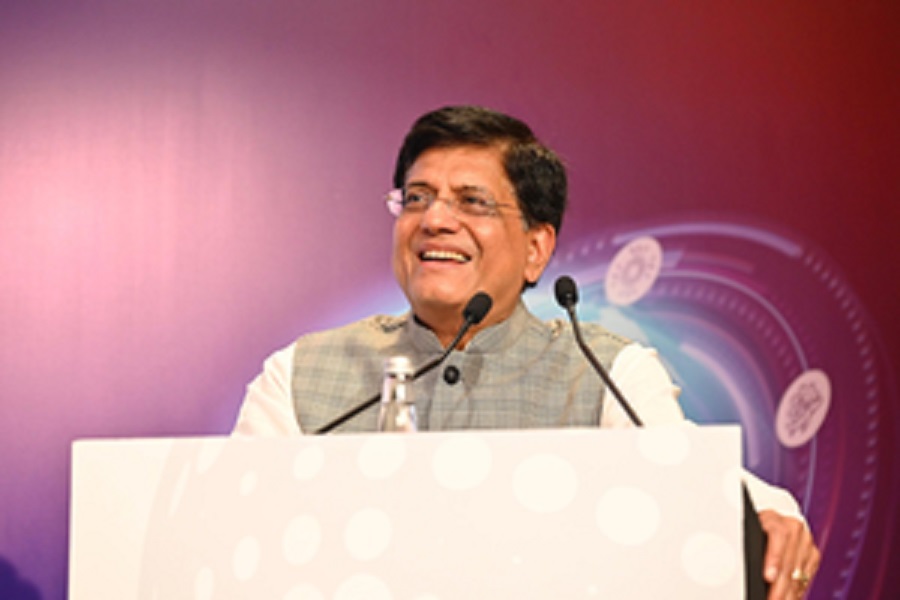







Tag News

Weekly Market Analysis : Markets strengthened recovery and gained nearly 2% in the passing w...







